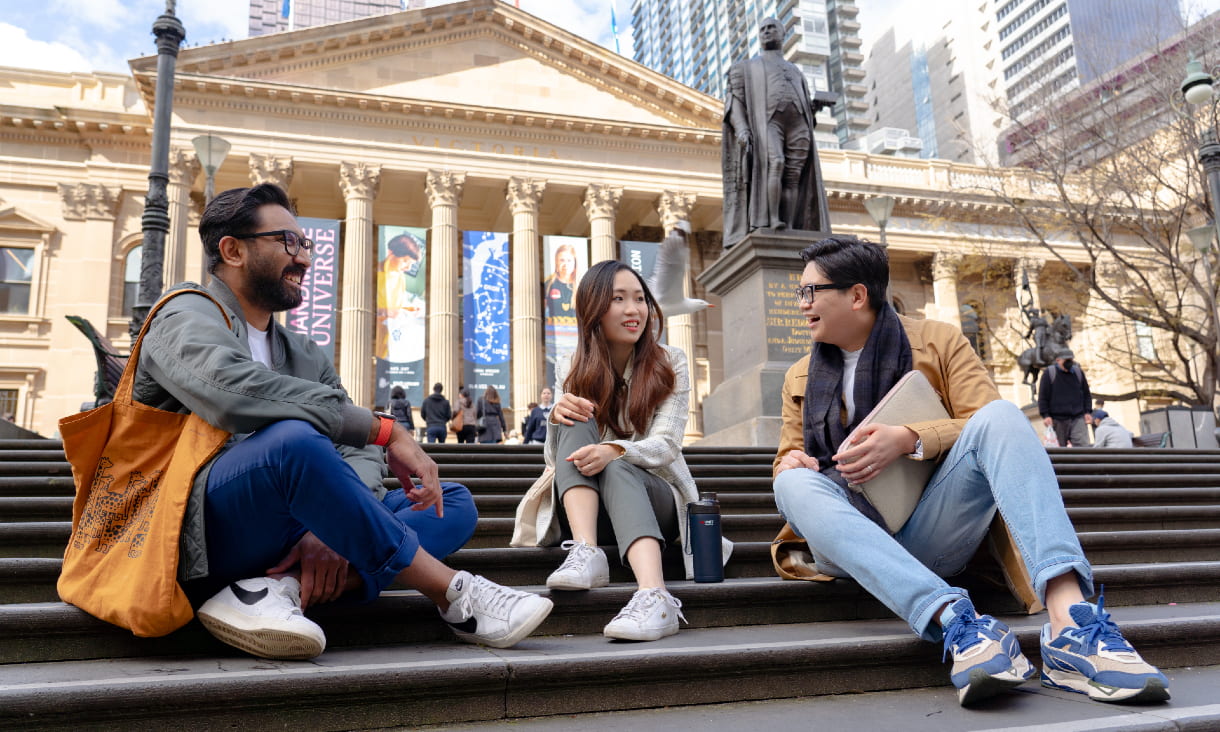With the book trade growing, now is a great time to launch your career in the publishing industry. But how to get started?

Largely driven by the strong performance of print books, the Australian book trade - along with global English-language markets including the US and the UK - yet again recorded year-on-year growth in 2016.
It’s a perfect environment for people looking to break into publishing, but getting your foot in the door can be challenging.
Experienced publisher Tracy O’Shaughnessy has more than 25 years in the bookmaking business, with an incredibly diverse career spanning many facets of non-fiction trade publishing.
Starting out as a personal assistant to the managing director of a small Sydney publishing house before climbing the publishing ladder, she worked in editorial and production and then took on the role of publisher, curating publishing programs for Hardie Grant Books, Melbourne University Publishing and Allen & Unwin.
Now a lecturer and Program Manager of the Master of Writing and Publishing at RMIT, O’Shaughnessy opens the door to the publishing house, offering her insider knowledge on how to launch your career in the industry.
It seems like no graduates can become employed without doing the hard yards of interning for free or a small stipend. Is this true of the modern publishing industry and if so what should students and graduates be looking for in internships?
Internships have become a common and sometimes necessary step in securing a position in publishing. Internships in creative fields, such as publishing and journalism, have replaced many of the trainee or apprenticeship models that existed in the past.
As an intern, you should be trying to learn as much as you can while on the job – not only the task at hand but also the broader publishing context. You should also be trying to make an impression in terms of your performance – do everything well and engage in even the most mundane of tasks (all jobs have them).
You should also aim to add the internship experience to your CV, and, where possible, try to add your supervisor as a referee who can speak about the tasks you did during your internship. You should also look at interning as a networking opportunity.
The Master of Writing and Publishing is set up to simulate an actual publishing house, so the two-year program can be seen as a working internship.
What sort of experience is advantageous?
Publishing houses are looking for people who are good team players, good at multi-tasking, great at problem-solving, have good attention to detail (whether in editorial or in other departments such as production and marketing), and are highly literate and hard-working.
Being computer savvy, having working knowledge of the different social media platforms and an understanding of publishing programs such as InDesign, Photoshop and Illustrator are also advantages.
What sorts of backgrounds are useful, apart from the appropriate tertiary qualifications, when hunting for a job?
There are many varied jobs within the field of publishing, and people from all sorts of backgrounds work in publishing, so it can be difficult to generalise.
However, demonstrating that you have an interest and passion by being involved in related activities, such as writers’ festivals, writing groups or indie start-ups can set you apart.
With digital natives now applying for graduate and entry jobs, how can digital skills be used to make applicants stand out?
Digital natives are good at interacting with the digital environment but don’t always understand how it works. Having an active working knowledge of websites and social media is always useful.
What are your thoughts on the divide between digital versus print books? How does this affect those interested in entering this field?
The question of print versus digital is not a binary model; rather, it is about providing the appropriate platform for the content and the market.
Both digital and print products have a place in the writing and publishing ecosystem and at this stage digital is between 20 and 30 per cent of the trade publishing market in Australia, so all of us working in the field of writing and publishing need to understand both forms of delivery.
The revival of the book – is this another fad, or is a successful community being built to ensure it’s not endangered?
The book isn’t going anywhere. As long as we have people who want to tell stories or organise their thoughts into a cogent narrative, we will have books.
Will they always be square and be made of paper? Most definitely not, as the digital revolution has shown.
Will we always need professionals to curate, edit and produce these ‘books’? Yes we will.
Will we need to be flexible in our skillsets and innovative in our thinking? Yes we will.
What do you believe the future publishing office and roles will look like and why? How can students prepare for this?
Publishing houses have to adapt and respond to a constantly changing global market.
Currently, there is more job creation in the marketing and publicity departments where publishers are responding to the rise and importance of digital marketing.
It has never been more important for publishing professionals to be a hybrid of highly skilled content curators and innovative marketers.
Story: Chanel Bearder
You may also be interested in:
Find the right course for you
With over 350 qualifications to choose from, it's never been easier to find the right fit.



